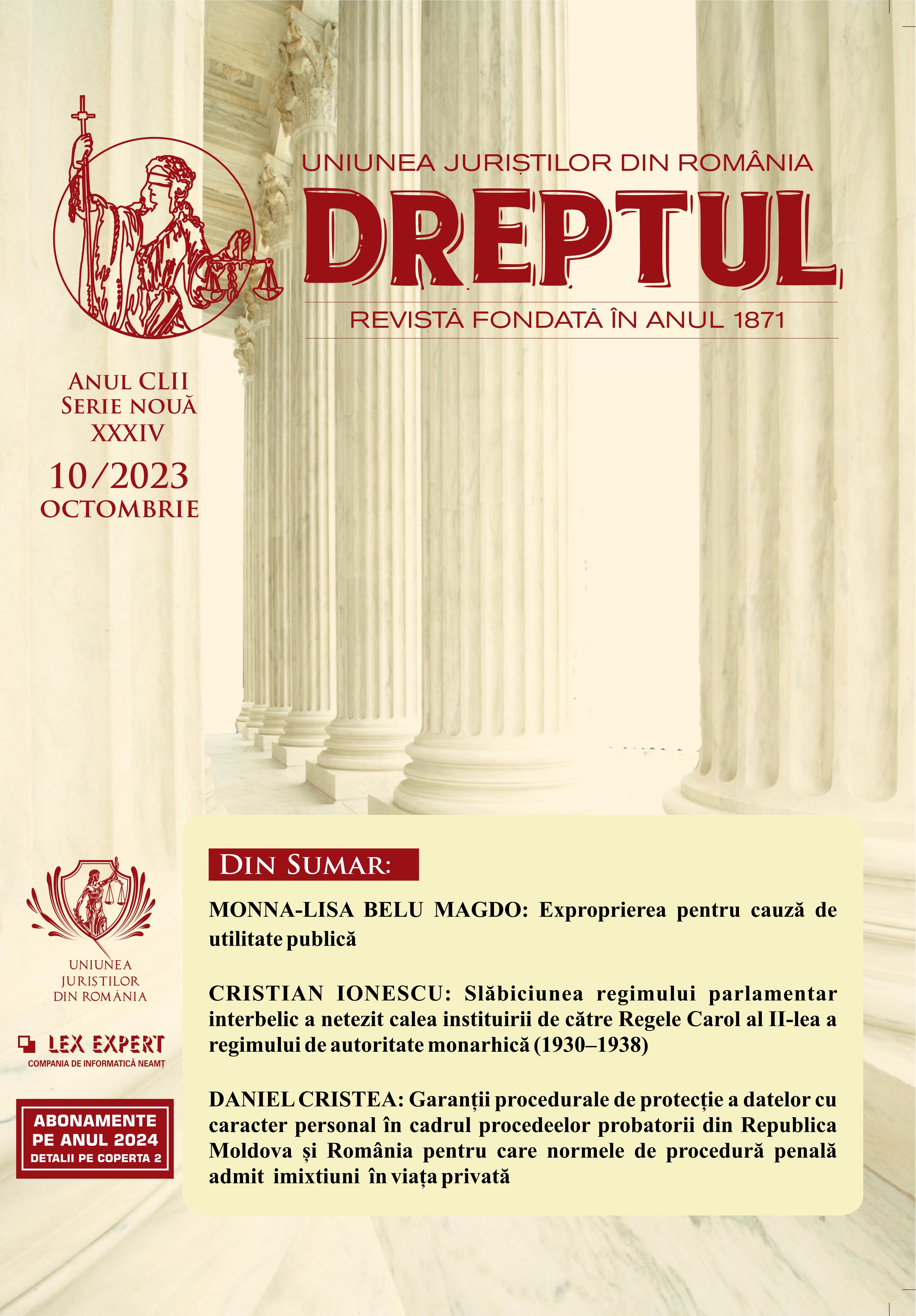Dreptul de uzufruct și exproprierea pentru cauză de utilitate publică. Aplicație a cazului fortuit sau cauză specială de stingere a dreptului?
The right of usufruct and the expropriation for cause of public utility. Application of the fortuitous case or special cause of extinguishment of the right?
Author(s): Carmen Dima, Cristian Andrei BarbuSubject(s): Civil Law
Published by: Uniunea Juriștilor din România
Keywords: usufruct; expropriation; fortuitous case; consolidation; compensation; extinguishing; subrogation;
Summary/Abstract: This study deals with two (partially) distinct ways in which the right of usufruct is extinguished or, as the case may be, changes its object. It is about the expropriation for cause of public utility and the fortuitous case, which, in the light of the effects they produce, can be subjected to a comparative analysis, in order to emphasize in particular the similarities between them, similarities that call into question the justification of the difference in legal regime created at the same time with the entry into force of the current Civil Code. The present analysis is going to focus on the way in which each of these institutions of law operates and, subsequently, to compare the resulting conclusions. The main working hypotheses are the one in which, relative to the will of the bare owner and of the usufructuary, the expropriation can be foreseen (and, therefore, taken into account when the right of usufruct is established) and the one in which, being established that it intervenes without the possibility to be foreseen and prevented, meets the conditions of a fortuitous case. This latter hypothesis is the one that poses problems from both a theoretical and a practical point of view, because the rules regarding the application of the civil law become incidental. The situation created, namely the conflict of laws, gives rise to several solutions, each with its shortcomings, from which those who apply the law are made to choose when they receive a concrete case for resolution. Likewise, the legislator, considering the state of uncertainty regarding this situation, should take into account the analysis of the two institutions, in order to bring them into agreement, for the purpose of ensuring the uniform application of the principles governing the new general regulation. Thus, the objective of the research is to emphasize the legal problems that exist at the moment and formulate a proposal in relation to the ways in which the regulation can be improved. Following the analysis, it can be observed how the general regulation, that of the Civil Code, has evolved, introducing the possibility of exercising a usufruct over some consumptible goods, while the special law that provides the expropriation has remained behind, preserving the principles considered almost 30 years ago. Precisely for this reason, expropriation came to overlap with the institution of the fortuitous case, which, in the current regulation, produces other effects than those it used to produce when the expropriation was regulated.
Journal: Revista „Dreptul”
- Issue Year: 2023
- Issue No: 10
- Page Range: 9-22
- Page Count: 14
- Language: Romanian
- Content File-PDF

